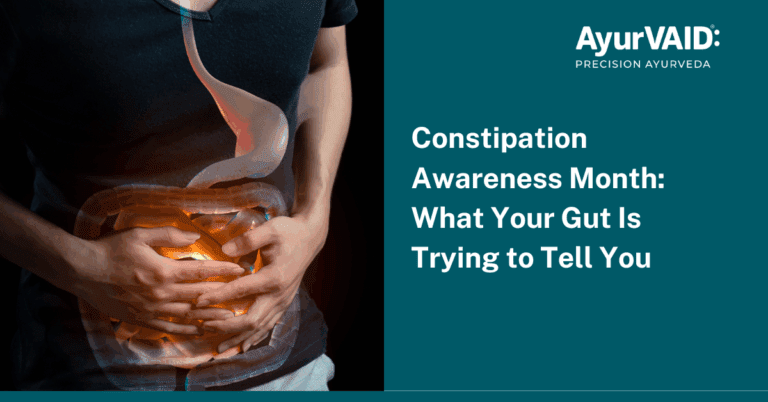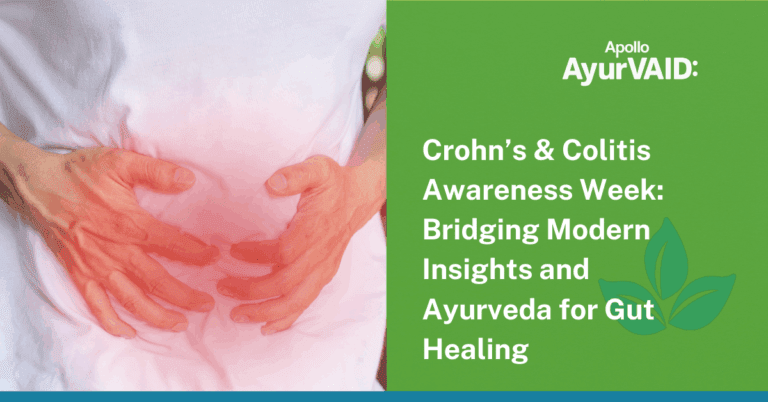
1. Proper Rest
You’ve just had a procedure in one of your body’s most tender, sensitive parts. Sitting, walking, or even standing for too long can cause pressure in the anal area and disrupt healing. Let yourself slow down. Stay home. Avoid chores. Let your body call the shots. In Ayurveda, rest allows Vata to settle and Dhatus (tissues) to rebuild. That’s not just a recovery, but it’s part of restoring overall balance.
2. Eat Soft, Warm, Simple Food
What you eat post-surgery matters. This is not the time for spicy, heavy, fried snacks, or raw salads that are heavy on the digestive system. Diet after fistula surgery should focus on warm, nourishing foods like rice porridge, lightly spiced moong dal, and steamed vegetables. Soft meals are easier to digest and help avoid constipation, one of the worst things to deal with after surgery in this region. This enhances Agni (digestive fire) so that healing happens without Ama (toxins) formation and inflammation.
3. Don’t Suppress Natural Urges
Holding back when you need to urinate or pass gas might seem harmless, but it adds pressure internally and can worsen pain or swelling. After fistula surgery, suppressing these urges is harmful. Ayurveda views Vegadharana (suppression of urges) as one of the main causes of disease. It’s especially risky now, when the anal region needs to calm down, not stress.
4. Keep the Area Clean, But Be Gentle
You may feel the urge to clean the area thoroughly, and that’s understandable, but being too aggressive can hurt more than help. Avoid harsh soaps, sprays, or any synthetic products. Warm water is enough. You can also use decoctions made with herbs like neem if advised by your Ayurveda doctor. After cleaning, pat dry gently with soft cotton. Never rub. Be mindful of any kind of swelling, discharge, or foul smell and immediately inform your doctor if you notice any.
5. Sitz Baths for Comfort
A warm sitz bath – just sitting in a shallow tub of warm water can bring so much relief. It soothes inflammation, eases pain, and helps the wound stay clean naturally. Doing this once or twice daily, especially after bowel movements, can speed up healing. Ayurveda often recommends infusing the water with herbs as prescribed by your Ayurveda doctor to support the process.
6. Be Mindful About Sitting
Patients often whisper shyly, “Can I sit after fistula surgery?” Yes, but carefully. Don’t sit on hard chairs, drive on uneven surfaces, or ride a bike. Use a cushion, preferably a doughnut-shaped one, to keep pressure off the wound. Try to lie down when you can. Change positions frequently. It’s all about reducing pressure so that the wound can close without disturbance.
7. Avoid Constipation at All Costs
Straining during a bowel movement is one of the most painful and dangerous things after this surgery. So your daily goal is to keep the stool soft. That means plenty of warm water, fibre-rich food, and gentle movement. Avoid a heavy-to-digest diet after fistula surgery, like raw salads, cold drinks, and processed food. If needed, use mild Ayurveda formulations or isabgol husk after checking with your practitioner.
8. Avoid Lifting Weight, Straining & Sexual Activity
These activities might seem harmless once the initial pain settles, but they put direct pressure on the pelvic region, disturbing the natural healing process. Heavy lifting or intense exercise can reopen healing tissue or trigger inflammation. Sexual activity, though temporarily restricted, should be avoided as it increases pelvic blood flow and stimulates Apana Vata (the downward-moving energy). If imbalanced, Apana Vata can lead to issues like irregular bowel movements, menstrual disturbances, and urinary problems.
9. Wear Comfortable Clothing
It sounds simple, but tight jeans or synthetic underwear can make the post-surgery phase feel ten times worse. Let the area breathe. Avoid anything that causes friction or traps moisture. Loose, soft cotton clothing can reduce the chance of infection and ease overall discomfort.
10. Stick With Follow-Ups
It’s easy to skip follow-ups once you start feeling better, but don’t. Thread changes and wound monitoring are key parts of Ksharasutra therapy, especially if you’re undergoing it.
Healing from fistula surgery isn’t just about the wound. It’s about creating a space physically and emotionally, where the body feels safe enough to rebuild. Ayurveda gently reminds us that healing isn’t rushed and that simple habits like rest, warmth, and food cooked with love are more powerful than we think. Let your body lead. You’ve done the hard part. Now let yourself heal, fully.







